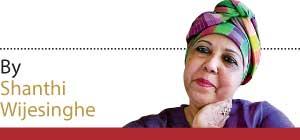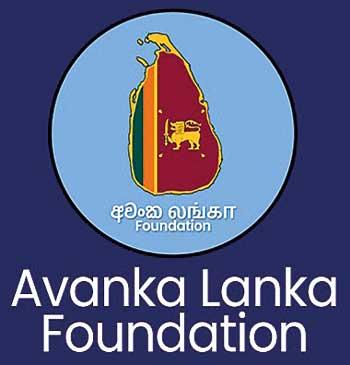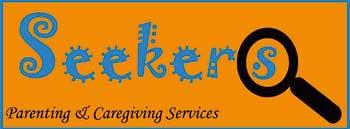26 Apr 2021 - {{hitsCtrl.values.hits}}
- The 4.6 million youth population of Sri Lanka is a formidable civil society force in advocating for all issues
- The incubator hopes to become the key focal point on Youth Empowerment Incubation in the Country
- Good legislation is indeed helpful to parents whose child has been abused by a third party
- This can only mean that the system is corrupt, and is in dire need of change
Tarangee Mutucumarana of HYPE SRI LANKA, in discussion with Shanthi Wijesinghe, on the subject of reforming Sri Lanka’s legal system to better respond to the crisis on violence against women and children.
My dwindling spirits finds a refreshing change this week by a young group of dedicated professionals in the task to understand and realise their role, society has burdened upon them. This is undoubtedly a gigantic effort to rebuild Sri Lanka’s tarnished image. If our generation of senior citizens are smart, we should be lending our shoulder to the wheel instead of excusing ourselves with the adage: “We are too old!” “We certainly are not…. However, we are not asked, and that is a BIG question.
Tarangee Mutucumarana, is the Head Independent Policy Thinker of The Hype Policy Tank on the subject of reforming Sri Lanka’s legal system to better respond to the crisis on violence against women and children.
The 4.6 million youth population of Sri Lanka is a formidable civil society force in advocating for all issues falling within the spectrum of inclusive and sustainable development. However, there is a lack of macro level coordination amongst the youth and the stakeholders of the national youth development framework to harness this advocacy potential. That is why HYPE Sri Lanka aims to be a catalyst for inclusive and sustainable youth development.
 Q What does legislation mean to a family whose child has been abused?
Q What does legislation mean to a family whose child has been abused?
Within the first 60 days of 2020, the National Child Protection Authority (NCPA) received over 2,500 cases of child abuse. On average, their hotline to report child abuse – 1929 – receives about 40 such complaints a day. In the family, school and community, children should be fully protected so they can survive, grow, learn and develop to their fullest potential. However, they deal with violence, abuse, neglect, exploitation, exclusion and/or discrimination every day. There is much abuse occurring against children, all around the country in all forms be they physical, emotional, verbal or sexual. A large share of this violence stems from their own family.
Good legislation is indeed helpful to parents whose child has been abused by a third party. However, the legislation needs to be wide enough to encompass the many kinds of abuse occurring against children, especially in the 21st Century, with the increase in use of Information Communication Technology. Sri Lanka lacks good laws in this area to protect children from the heinous crimes that occur in cyberspace.
There are laws which allow for corporal punishment of children in Sri Lanka. When many other countries have amended their laws, Sri Lanka lags behind. While welcoming the recent Supreme Court judgement that held very strongly against corporal punishment, it must be noted, that Judges cannot make laws, thus it is essential that the Legislation sees these issues as priority and make the necessary amendments to the laws. I do hope that the Justice Minister will soon do so. Further, having good laws drafted by the Legal Draftsmen is insufficient, if we do not have a process that enforces the law effectively. From the first point of law enforcement till the time that justice is provided to the victim, the mechanism must be victim- centric. i.e. complaints must be written down with care, speedy investigations must occur and finally the atmosphere of the court must be favourable to the child to be a witness. At no time should there be secondary victimisation or victim blaming. A victim- centric approach is necessary. For this approach to be successfully implemented, a sensitive training should be given to the police, court staff and Judges.
Supreme Court judgement that held very strongly against corporal punishment, it must be noted, that Judges cannot make laws, thus it is essential that the Legislation sees these issues as priority and make the necessary amendments to the laws. I do hope that the Justice Minister will soon do so. Further, having good laws drafted by the Legal Draftsmen is insufficient, if we do not have a process that enforces the law effectively. From the first point of law enforcement till the time that justice is provided to the victim, the mechanism must be victim- centric. i.e. complaints must be written down with care, speedy investigations must occur and finally the atmosphere of the court must be favourable to the child to be a witness. At no time should there be secondary victimisation or victim blaming. A victim- centric approach is necessary. For this approach to be successfully implemented, a sensitive training should be given to the police, court staff and Judges.
Q We know that court cases are long drawn out. does HYPE Sri Lanka provide intermediary facilitating?
Hype Sri Lanka does not provide any legal services as our expertise is Youth Empowerment Incubation (YEI) and mobilising the national youth population towards macro advocacy in areas affecting the youth.
 |
 |
 |
Q How did you personally become involved with HYPE Sri Lanka?
The Hype Policy Tank is a signature project of HYPE Sri Lanka. They called for applications from those interested in policy reform in a number of areas, such as education, youth employment, health rights, disability rights etc.
Q Where do you visualize HYPE’s involvement in the next five years?
Hype Sri Lanka is a young organisation which was launched in January 2020. Since our main aim is to change how the country approaches youth development, the incubator hopes to become the key focal point on Youth Empowerment Incubation in the Country and to localise this youth development approach at district level youth empowerment systems. To this end, we aim to better connect with the state systems for youth development and help steer national efforts, by establishing nine provincial sub-incubators across the Country.
Q There are many individuals and groups jumping on the bandwagon and naming themselves ACTIVISTS of women and children...yet nothing seems to come out if it, except hyped up steam...what is the reason for this ? Are there no laws to govern such groups?
The harsh reality is that many non-profit entities do not register themselves with the governmental authorities, either due to the lack of knowledge or due to red tape in the process of registration. This results in the problem you mentioned: unsupervised efforts of organised advocacy for a particular cause.
Q We understand that perpetrators have high powered links to be exonerated. As a young Lawyer, what does this tell you ?
This can only mean that the system is corrupt, and is in dire need of change. In a government mechanism, punishments may not be what really changes the system, although possibly helpful. It is up to each and every one of us to understand that we need to do what is morally right, what is lawful, what is true to our conscience. It is only with that outlook and attitude, that we can make an extremely corrupt system see better days, at least for the next generation, if not for ours.
Q Which forms of legislature are practised for the protection of women and children?
In relation to the legal policy framework of Sri Lanka, the International Women’s Year (1975) and the United Nations Decade for Women (1976-1985) inspired the adoption of laws, policies and mechanisms for the promotion and protection of women’s rights.
Q What reforms would you like to see bring about the necessary changes?
The solution is not purely a legal one because a legal response is reactive as opposed to preventive. Therefore, we need both a politico-social and legal response in this regard. The following are some needed responses under the two aspects.
The law clearly needs a few reforms and it has been a long time coming. Laws can only be changed by the legislature and the lack of change may be due to the lack of women representation in Parliament. This is why more female representation is necessary. However, the fight for substantive equality cannot be won by women alone and I sincerely hope that all Members of Parliament also should join hands, so that we can win this fight together. A civil advocacy population that can lead the cause until systems catch up to the crisis, is the youth population of the Country.
My question is : Are those who profess to be the REPRESENTATIVES OF THE PEOPLE, understand the true value of such organisations ?
Avanka Lanka Foundation has pledged its commitment to establish a strong network of Activists, Organisations and Individuals who are committed to stand against the Abuse of Women and Children, in all 25 districts by March 2022. We invite our readers to join us in this endeavour.
Online Platforms of Hype Sri Lanka :
Website: https://hypesl.org/
Facebook: @HYPESLyouth
Instagram: @hype.sl
Twitter: @hype_srilanka
YouTube: @Hype Sri Lanka
LinkedIn: https://www.linkedin.com/in/hype-sri-lanka-94a72b1a3
The Avanka Lanka
Tel; 0112863429,
Website; www.avankalanka.org
19 Apr 2024 55 minute ago
19 Apr 2024 1 hours ago
19 Apr 2024 2 hours ago
19 Apr 2024 3 hours ago
19 Apr 2024 6 hours ago